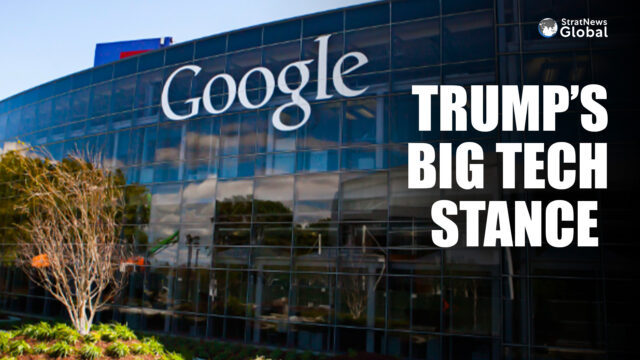Donald Trump will likely dial back some of the antitrust policies pursued under the administration of President Joe Biden, potentially including a bid to break up Alphabet’s
Google over its dominance in online search, experts said.
Trump is expected to continue cases against Big Tech, several of which began in his first term, but his recent skepticism about a potential Google breakup highlights the power
he will hold over how those cases are run.
“If you do that, are you going to destroy the company? What you can do without breaking it up is make sure it’s more fair,” he said at an event in Chicago in October.
The U.S. Department of Justice is currently pursuing two anti-monopoly cases against Google – one over search and another over advertising technology, as well as a case against Apple . The U.S. Federal Trade Commission is suing Meta Platforms and Amazon.com.
The DOJ has laid out a range of potential remedies in the search case, including making Google divest parts of its business such as the Chrome Web browser and ending agreements that make it the default search engine on devices like Apple’s iPhone.
But the trial over those fixes will not happen until April 2025, with a final ruling likely in August. That gives Trump and the DOJ time to change course if they choose, said William
Kovacic, a law professor at George Washington University.
“He is certainly in the position to control the DOJ’s disposition of the remedies phase,” said Kovacic, who chaired the Federal Trade Commission under then-president George W.
Bush.
Trump is also likely to pull back on some policies that have irritated dealmakers under the Biden administration, attorneys said. One is a reluctance to settle with merging ompanies, which was previously common and let companies address competition problems that agencies raised about deals by taking actions like selling part of the business.
The FTC and DOJ would likely scrap merger review guidelines crafted under Biden, said Jon Dubrow, a partner at law firm McDermott Will & Emery.
“The 2023 merger guidelines were very hostile to mergers and acquisitions,” he said, echoing a view widely held on Wall Street.
The FTC’s ban on most non-compete clauses in employer-employee contracts could be more vulnerable to a lawsuit brought by the U.S. Chamber of Commerce, if the FTC
votes not to defend it.
About 30 million people, or 20% of U.S. workers, have signed non-competes, according to the FTC. The agency is currently appealing a court ruling that blocked the rule.
But such actions to dismantle the work of FTC Chair Lina Khan will depend on a Trump-appointed replacement being confirmed to give the bipartisan five-member commission a
Republican majority.
With Reuters inputs
Thirty eight years in journalism, widely travelled, history buff with a preference for Old Monk Rum. Current interest/focus spans China, Technology and Trade. Recent reads: Steven Colls Directorate S and Alexander Frater's Chasing the Monsoon. Netflix/Prime video junkie. Loves animal videos on Facebook. Reluctant tweeter.





